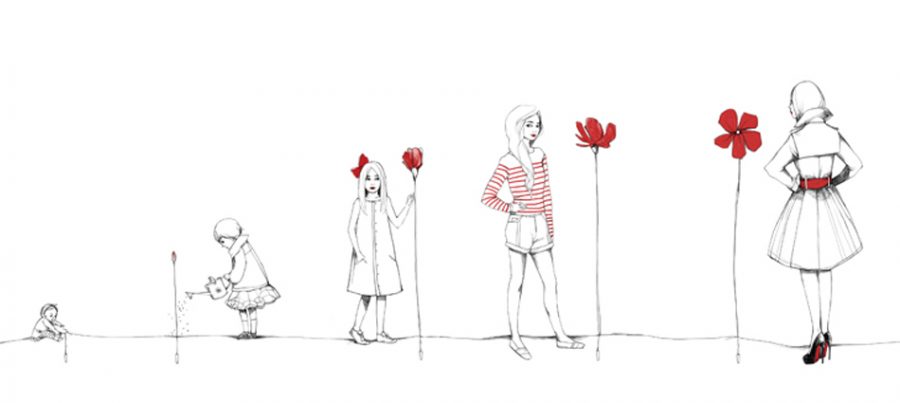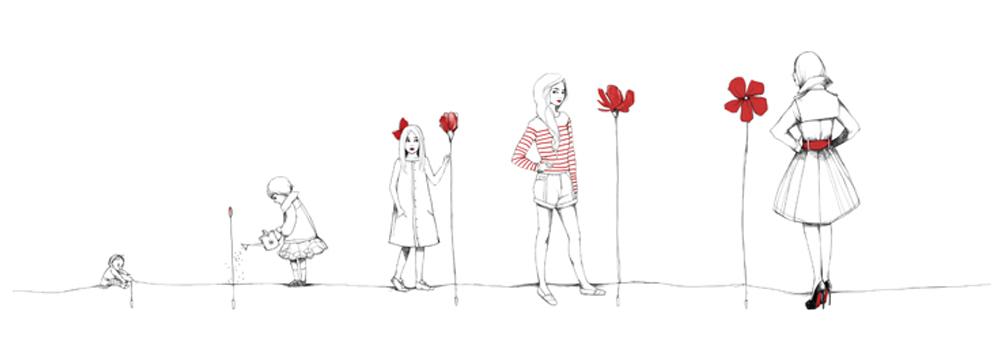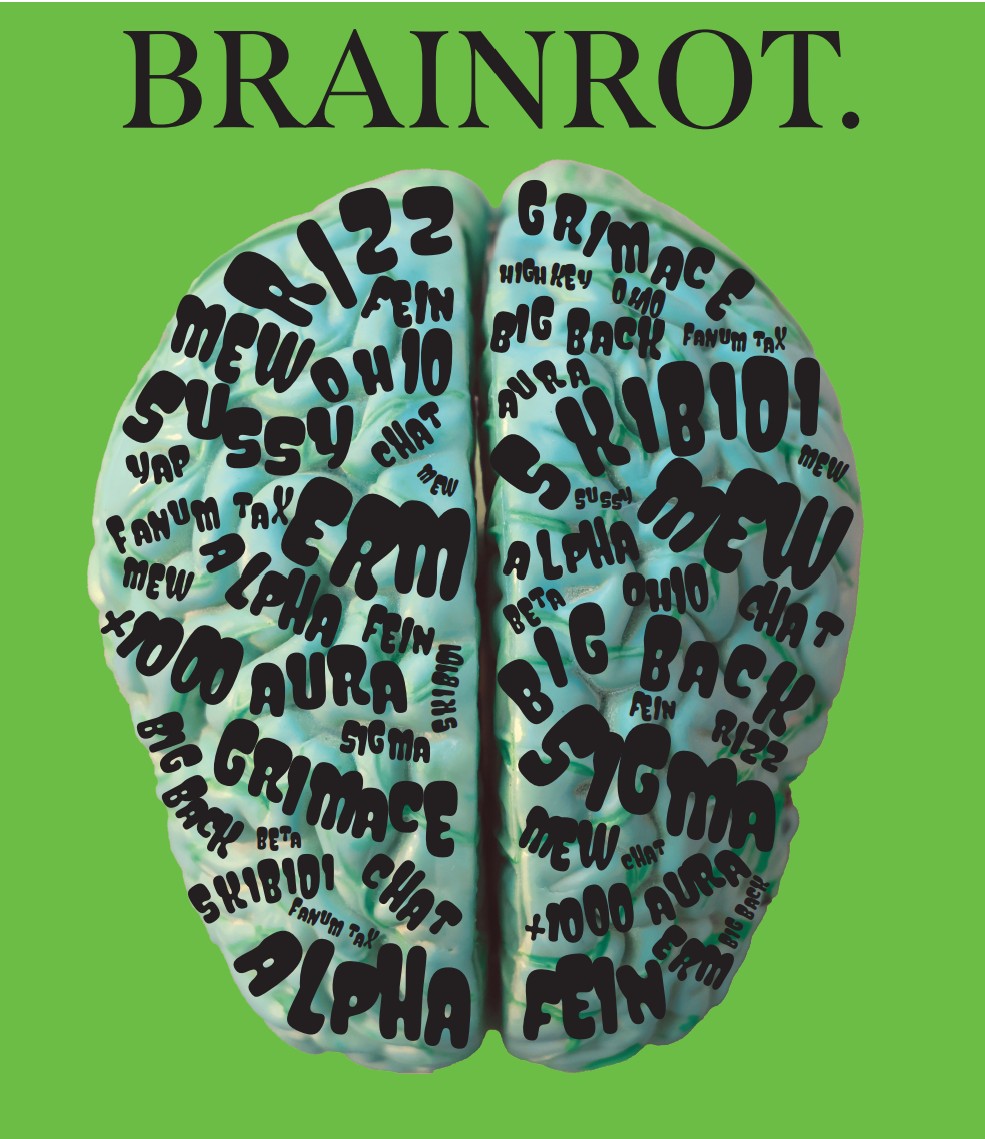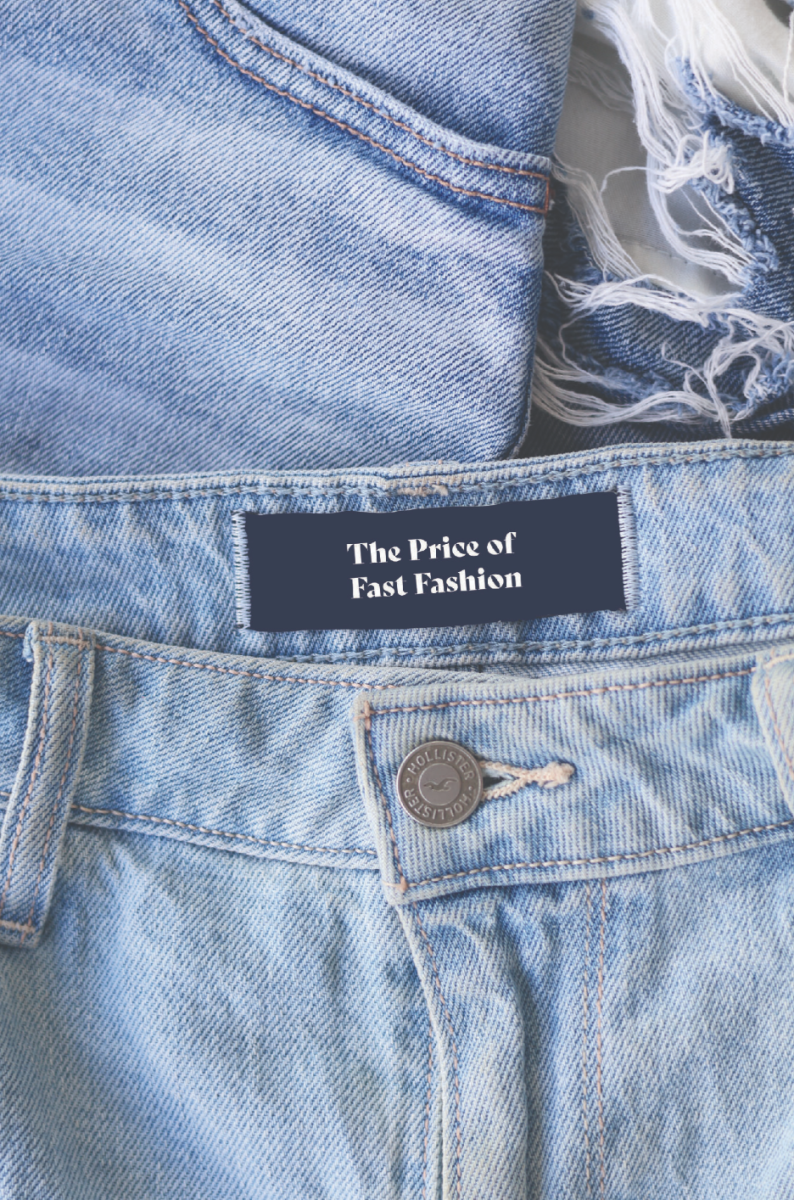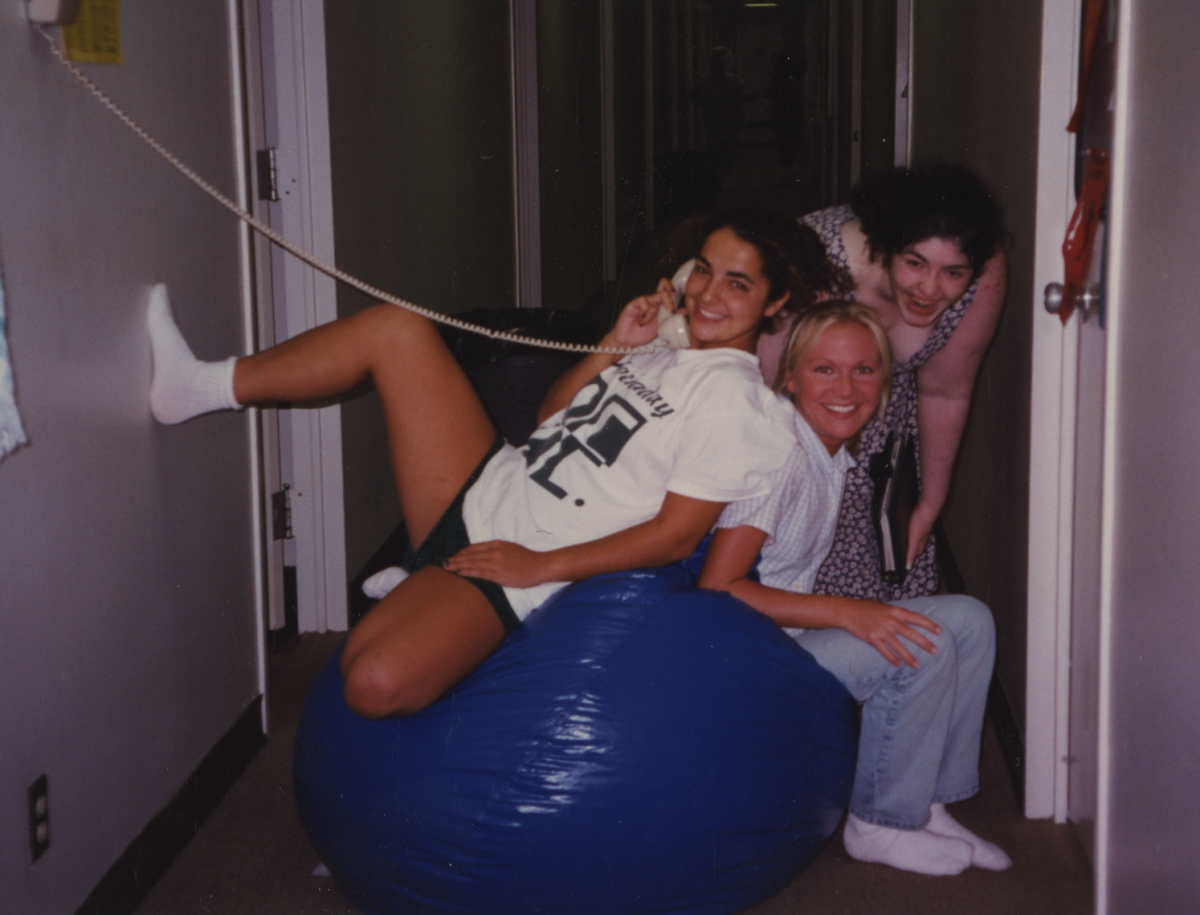Every girl remembers her first period. No matter how long she’s waited, no matter how long she’s anticipated its arrival, the surprise, the excitement and the feeling of maturity that comes from reaching menarche, a girl’s first period, imprints itself on the memory of every young woman.
When discussing first periods in America today, girls flippantly use the word “womanhood.” In the context of the actual experience of reaching menarche in our society, it seems a bit overblown. The whole ordeal is more of an introduction to a new aisle in the grocery store than a celebrated rite of passage or the start of a new stage in life.
On occasion, older Hockaday students toss each other tampons in the hallways, but when they first start their cycles, “girls don’t talk about it with their peers at all, they could be best friends and they rarely will disclose that they’ve had their period,” said Dr. Mandy Golman, an assistant professor specializing in adolescent and women’s health at Texas Woman’s University. As girls get older, “within 18 months, by the time they’re 14 or so, give or take, they’re all talking about it with each other.”
This window of silence exists because no girl wants to be the first among her friends to start her period, said Golman. According to a 2003 “Pediatric Digest” report, the average age of menarche in America is 12.43 and 90 percent of girls have started their periods by age 13.75. Girls wait until they are almost certain everyone around them has started theirs before broaching the subject. At a time when young women are already self conscious about changes in their bodies, hiding the fact that they have begun their monthly cycles is perhaps expected.
“Because we lack rituals around this coming of age part of a girl’s life I think there probably is a hesitancy on the part of some people to have a lot of conversation about it. I think it’s a little less celebrated and therefore probably less talked about than in some cultures,” Eugene McDermott Headmistress Kim Wargo said.
Mothers and sisters are usually the first to know, and this small group may casually commemorate the occasion.
Sophomore Lily went out for mani-pedis with her mother and sister to “celebrate,” but her interaction with her dad veers far closer to the hush-hush norm.
“I’ve never talked to my dad about my period,” said Lily.
Senior Elli also never discusses it with her dad, acknowledging that her family “is not open about [menstruation] at all.”
Senior Megan, however, doesn’t mind making her little sister uncomfortable at the dinner table.
“My family is so open about everything,” Megan said. “Talking about my period with my dad is like talking about the weather.” In the interest of full disclosure, her father is a urologist.
When girls first learn about menstruation, it is presented completely separate from any discussion of burgeoning fertility and sexuality.
Director of Health Curriculum Rebekah Calhoun believes that explaining this potentially off-putting change in a girl’s body along with reproduction may be too much for a fourth grader to handle and understand.
But even as the young girl grows older, the biological event of becoming a fertile woman, capable of bearing children, is of less importance in a society that places proper hygiene before discussions on awakening sexual maturity.
In early 20th century America, lower class young women rarely learned about getting their period until it happened. Middle and upper class girls learned about their monthly cycles (without any mention of sex) in pamphlets like “Daughter, Mother, and Father: A Story for Girls” or films like Disney’s 1946 collaboration with Kotex, “The Story of Menstruation,” which advised girls not to throw off their cycles by “getting over tired, emotionally upset or catching cold.”
Noted as the bible of menarche, “Are You There God? It’s Me, Margaret,” first published in 1970, changed the way young women viewed their periods. Instead of a timid or embarrassed preteen awaiting its arrival, the protagonist, anxious and impatient, can barely stand the delay. For a generation of girls, it provided the first frank forum for discussion on the emotional experience of reaching menarche.
“‘Are You There God? It’s Me, Margaret.’ was groundbreaking and so to say that there hasn’t been a change, that’s probably not fair, but do I think we’re where we should be?” asked Golman. “No. I think we’re moving in the right direction but I still don’t think that girls, the majority, are happy about having their period, have been communicated about what’s going to happen.”
Arguably the “Are You There God?” equivalent in terms of audience and sales for the millennial generation, “The Care & Keeping of You,” offers straightforward aid and advice on what to expect. Rather than discussing getting one’s period simply in terms of how it makes one feel, the book offers tips on purchasing feminine products and diagrams illustrating their use.
Wargo believes the book responded to and promoted a changing viewpoint in which girls were “comfortable with the biological aspects [of menstruation], the fact that it’s natural, it’s part of life, it’s ongoing. It doesn’t mean that you can’t play sports, it doesn’t mean that you can’t go on with the rest of your life.”
In the past few decades, the advertising industry has also recognized this slowly rising comfort level in the way girls regard menstruation, resulting in a change of approach in selling feminine hygiene products.
“Are you sure I’ll still be a virgin?” read a Tampax ad that ran in 1990. In the two decades since, successful campaigns like the U by Kotex “break the cycle” initiative have transformed the way women and girls shop for and view their feminine products.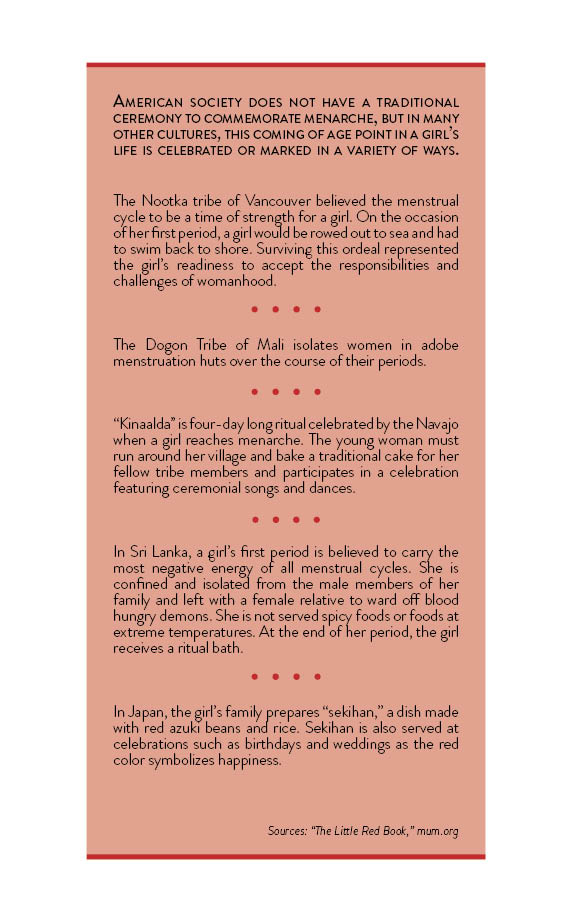
Their ads poke fun at the white pants and blooming meadows standard in commercials for feminine products and allow girls to acknowledge not just the need for protection and avoidance of awkward incidents, but also the potential for open, honest and, in this case, humorous conversation.
In one U by Kotex ad, a young woman moves through a sequence of shots against white backgrounds. “Buy the same tampons I use because I’m wearing white pants and I have good hair,” she says, mocking the longtime industry standard used to reach young adult women.
Kotex tampons saw a 57 percent sales increase within a few months of the launch of this new ad campaign and product line in spring 2010.
Evidenced by the success of these ads, a change in attitude towards menstruation is taking place. Twenty-two-year-old Rachel Lauder Nalebuff embodies this new outlook. In 2009 she took a gap between high school and college to compile the “New York Times” bestseller “My Little Red Book,” the most recent addition to the small cannon of menstruation literature.
The book contains the “first period” memoirs of dozens of women across cultures and age groups. Her goal was to break the taboo, initiate dialogue and change the way women and girls think about menstruation.
Though this process has begun, Golman hopes American society will reach a point “where moms aren’t afraid to talk about it, dads aren’t afraid to bring it up. I think that’s where we want to move to, to where it’s open conversation.”
Confident and open discussions about menstruation with adolescent girls will encourage them to grow and become confident and open women.
Caroline and Allie

